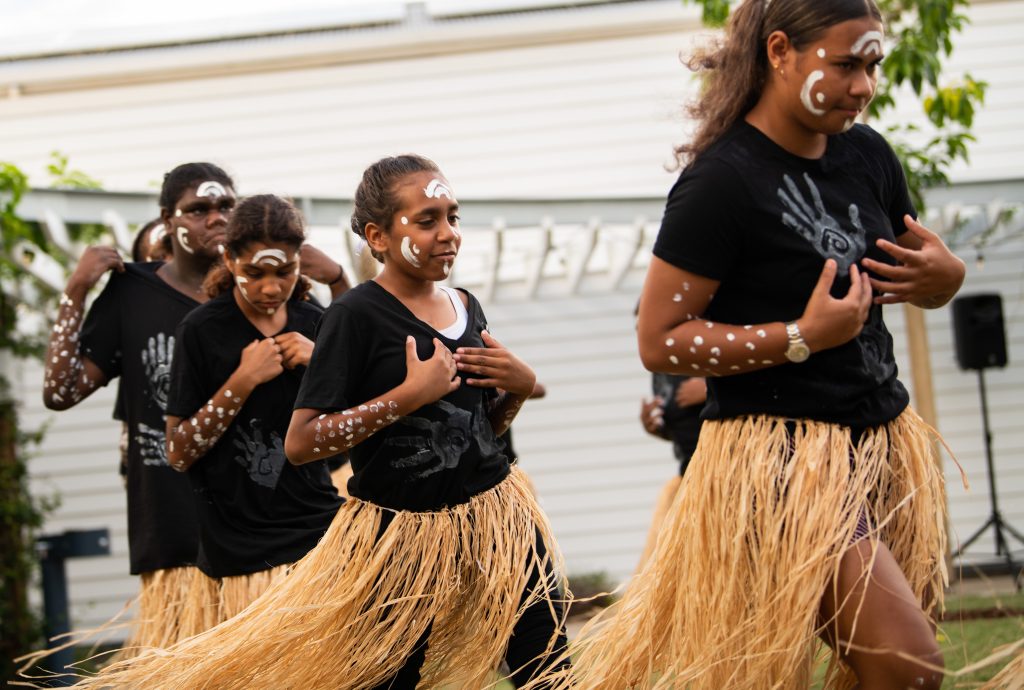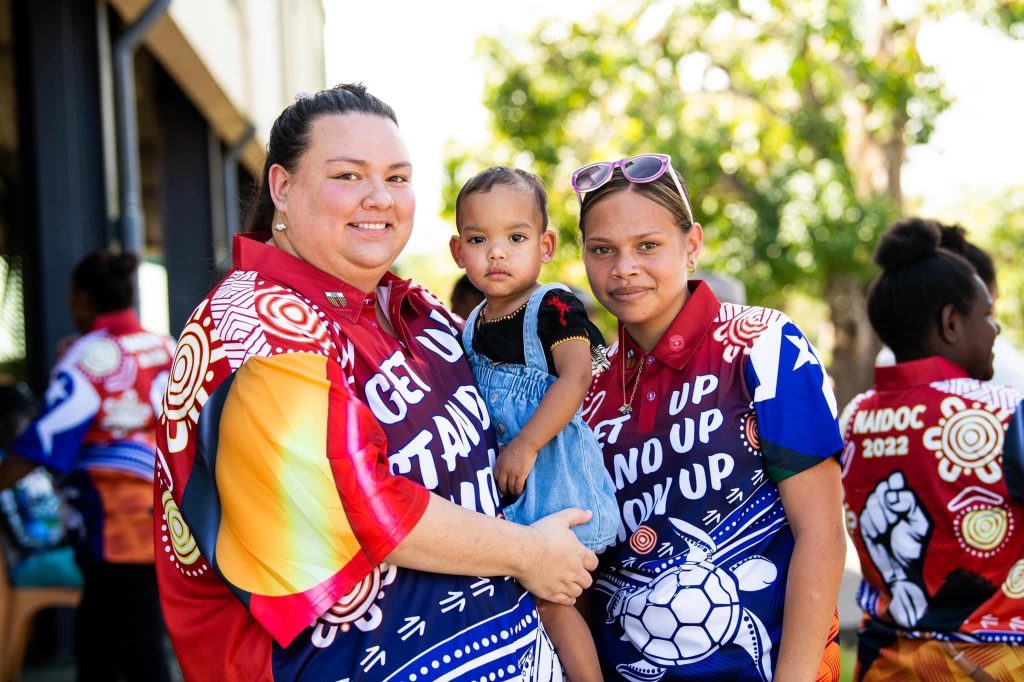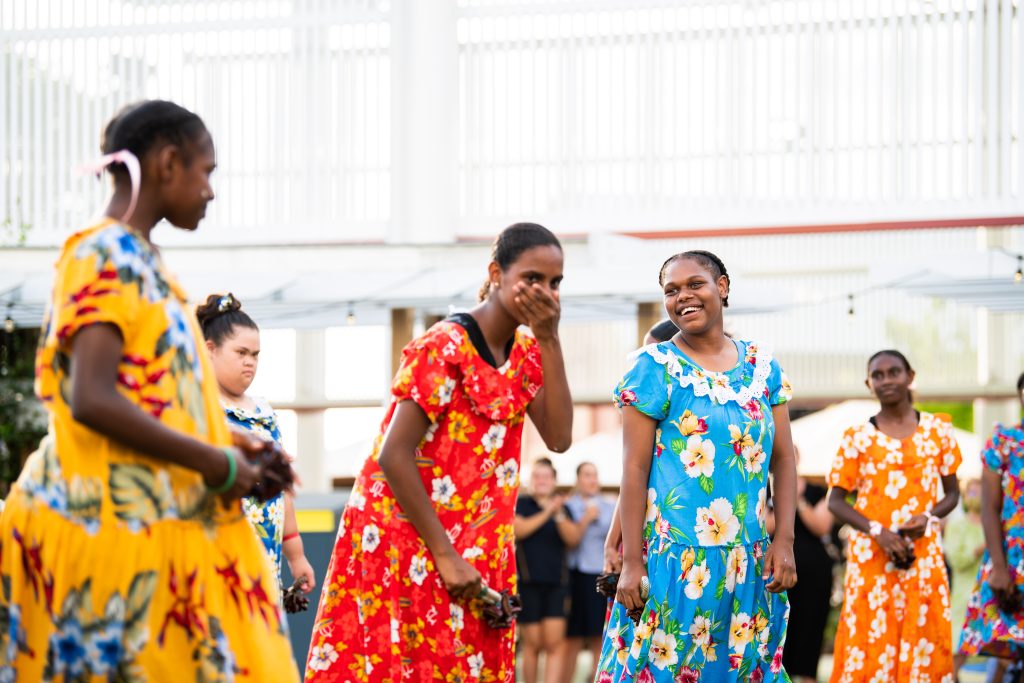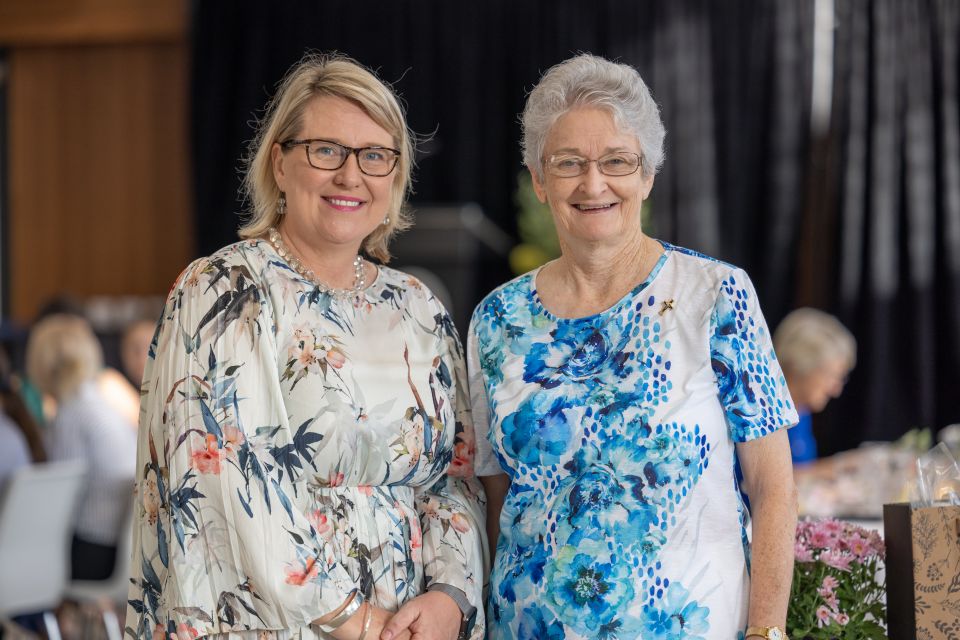Building a Culturally Safe Community at St Patrick’s College Townsville
March 7, 2023
Students performing at a College Open Day
St Patrick’s College Townsville has embodied Mercy values, such as compassion, respect, integrity, justice, hope, and joy, since the late 1800s, inspired by Sisters of Mercy foundress Catherine McAuley. Today, the college takes pride in welcoming young women from diverse national, cultural, and faith backgrounds, and in fostering a community that seeks to build relationships and understanding with First Nations people.
While St Patrick’s has historically been home to a small number of First Nations boarders from Palm Island, the number of both First Nations boarders and day students has significantly increased in recent years.
Currently, 20% of the college’s student body identify as Aboriginal and/or Torres Strait Islander, representing a broad range of discrete and remote communities from Palm Island, the Torres Strait Islands, Western Queensland, and the Gulf and Cape York Peninsula communities. Of the students who board at the college, 81% identify as Aboriginal and/or Torres Strait Islander.
However, for Principal Amber Hauff, the significance of these statistics goes beyond the numbers.
“Data is useful, but there are human faces behind the data,” she says. “What’s more exciting is the community we’re building – a place where reconciliation is a journey we all take together with love, learning, and understanding.”

Senior Boarding Supervisor, Sarah Amos and students at a NAIDOC Week celebration.
Chair of the College Board, and former student, Sr. Helen Mary Peters, emphasizes that connection and community lie at the heart of St Patrick’s College. “We are always striving to create a culturally safe place where everyone can feel safe, loved, and valued,” she says. “This means we need to understand where the students are coming from and what their life experience is, so we can help bridge the gaps.”
To achieve this goal, St Patrick’s offers teachers and college staff the opportunity to attend cultural engagements in remote communities, where they can sit in classrooms, meet Elders, and visit students’ homes to gain a better understanding of their country. The lessons learned from these visits are then brought back to the college and implemented to honor the culture and traditions of First Nations students.
The transition from primary school to high school is challenging for many students, particularly those First Nation students coming from remote communities. “Our staff are committed to making that transition as smooth as possible, and sometimes that means traveling to the student’s home to get to know them and their families on their country,” says Amber.
According to Sr. Helen Mary, every time the college sees an opportunity to do better in supporting a culturally safe environment, it moves to implement change where appropriate. This dedication to improvement has led to many changes in the college.
Sr. Helen Mary reflects on her time as a residential student in the early 1960s: “Back then, the school was very basic,” she recalls. “You had these big open dormitories with multitudes of beds in them, and there was a very strict daily routine with very few extracurricular programs or outings.”

Students performing at a College Open Day
Today, the college has a much homelier atmosphere, and the girls can often be seen taking their dinner out on the deck or the lawn. A whole-person approach is taken with regards to the welfare of St Patrick’s students, with the girls having access to many extracurricular offerings, regular outings, health programs, an in-house clinic, and two psychologists.
The college is continuously seeking ways to foster connections to culture and learning for both residential and day students. “We frequently have family members, Elders, and members of their communities come to work with the girls on activities that can engage them in culture and tradition, such as cultural cook-ups and cultural dancing,” says Amber.
In August, St Patrick’s College Townsville is set to host a NAIDOC festival which will see family members from remote communities travel to the college to run a series of workshops with the students. The school has enlisted the help of the neighbouring Catholic primary school, involving both students and staff in the festivities. Among the workshops on offer will be a yarning circle, cultural dancing, story-telling, cooking, weaving, and language learning, all aimed at promoting cultural awareness and strengthening connections to country.
“What makes this event so special is that our First Nations girls have been the driving force behind it,” says Amber. “They have taken the lead on deciding what and who will be involved, which means they’ve been telling me what to do!”
The students are not the only ones benefitting from the college’s emphasis on cultural awareness and respect for local Indigenous history and spirituality. Each year, staff members are offered scheduled formation to learn more about Mercy charism and to further their understanding of Indigenous cultures. Facilitators from the community, government, and Mercy Partners are brought in to provide personal and professional development opportunities.
“As we face a shortage of teachers, we recognize the importance of keeping our excellent staff,” says Sr. Helen Mary. “That’s why we provide opportunities for teachers to grow in their roles. Each teacher has their own mentor and a tailored plan for personal and professional development.”
Drawing in new enrolments is an ongoing focus and to attract new students the college remains committed to excellence in all areas, from programs to performance and teachers. The First Nations students of St Patricks are not only benefiting from their education but also offering their own teachings to Amber and her staff, enriching the experience for everyone involved.
“I feel incredibly grateful to have the opportunity to learn from these remarkable young women about culture, country, and community,” says Amber, reflecting on the positive impact the colleges ongoing efforts to promote cultural awareness are having on everyone involved.

Principal Amber Hauff with Board Chair Helen Mary Peters RSM
For more information about St Patrick’s College – www.stpatscollege.qld.edu.au
